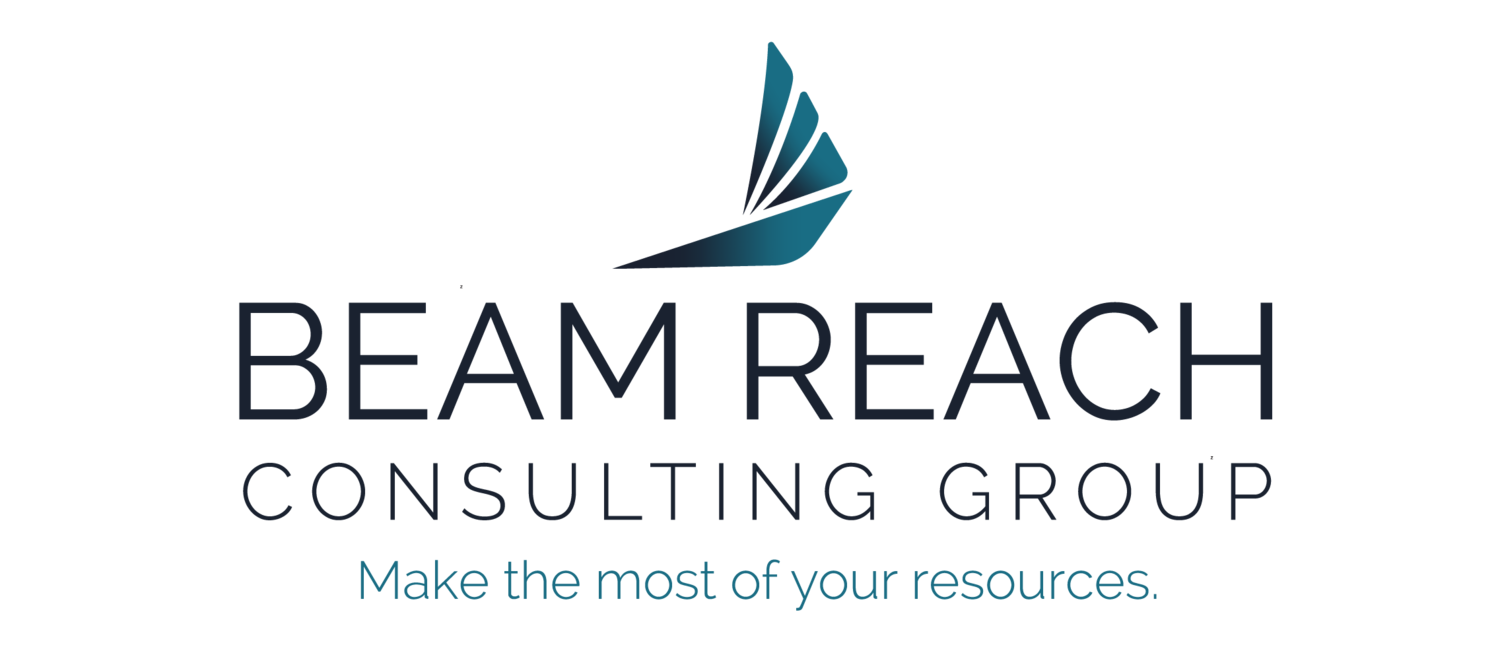The Art of Consulting: Insights from Chris Kelley of Beam Reach Consulting Group
/Navigating the complex world of business strategy and operations requires more than just task execution; it demands the strategic foresight and relational skills of a consultant. Christopher Kelley, Vice President at Beam Reach Consulting Group (Beam Reach Group), shares his experience to shed light on what makes an effective consultant. His insights, shaped by years of experience, highlight the essential qualities needed to build lasting client relationships and deliver impactful solutions.
Strategic Vision vs. Task Execution
Kelley emphasizes the importance of a strategic approach in consulting. "A consultant must always be thinking of the future, incorporating their own insights into the client's vision," he explains. This proactive mindset is about developing a collaborative solution that not only addresses the immediate needs but also aligns with the client’s long-term goals. On a recent critical energy infrastructure client project, Kelley and his team emphasized the importance of weaving strategic thinking into the client's framework, resulting in a more robust and sustainable solution.
Building Trust Through Integrity and Transparency
Trust, integrity, and transparency are the bedrocks of any successful consulting relationship. Kelley references Tuckman’s 5 Stages of Group Development, particularly the "Form then Storm" stages, to illustrate the importance of these values. "Clients need to trust that we will tell them the uncomfortable truth rather than a comforting lie," he asserts. This principle fosters a culture of honesty and openness, both within Beam Reach Group and in client interactions.
Empowerment Through Collaboration
One of the most impactful ways consultants can add value is by empowering their clients through collaboration. Kelley believes in the power of collective expertise: "There’s value in recognizing that you can’t be an expert in every field. We bring out the best through thoughtfully designed discussions, where all stakeholders learn from each other." This collaborative spirit ensures that all voices are heard, promoting buy-in and shared ownership of the project's success.
Agility and Creativity in Problem-Solving
Agility and creativity are critical components of effective consulting. These qualities enable consultants to navigate the unpredictable nature of client challenges. "Employing a variety of methods with our clients ensures we are flexible and adaptable for any given challenge,” Kelley notes. Engaging different tools and subject matter expertise across industries and disciplines encourages creative thinking in ways that allow Beam Reach Group to adapt quickly to changing circumstances and devise innovative solutions tailored to each client's unique needs.
Persistence and Resilience
Challenging projects require a consultant to be persistent and resilient. Kelley highlights the importance of maintaining a positive attitude and a solution-oriented mindset, even when faced with setbacks. "The key is to stay focused on the client’s goals and to continuously refine our strategies to meet those objectives," he says.
Persistence involves not only sticking with a problem until it is resolved but also demonstrating the tenacity to explore multiple solutions and approaches. Resilience, on the other hand, is about bouncing back from setbacks and learning from failures. Kelley notes that the most successful consultants are those who view challenges as opportunities for growth and innovation. By maintaining a resilient approach, consultants can adapt to changing circumstances and unforeseen obstacles, ensuring that they remain effective and reliable partners for their clients.
Diversity and Inclusion: Enhancing Solutions
Kelley also underscores the importance of diversity and inclusion in consulting. "A diverse team brings a wealth of perspectives that can significantly enhance the quality of solutions provided to clients," he explains. By fostering an inclusive environment, Beam Reach Group ensures that their strategies are not only effective but also culturally sensitive and widely applicable.
Embracing diversity means recognizing and valuing the unique backgrounds, experiences, and insights that each team member brings to the table. This approach leads to more innovative and comprehensive solutions, as it encourages out-of-the-box thinking and challenges conventional viewpoints. Kelley points out that diverse teams are better equipped to understand and address the varied needs of their clients, leading to more personalized and effective outcomes.
Furthermore, inclusion is about creating a space where all team members feel valued and empowered to contribute their best work. Kelley believes that an inclusive culture promotes higher levels of engagement and collaboration, which are critical for driving successful project outcomes. "When everyone feels respected and heard, it creates a dynamic environment where creativity and problem-solving flourish," he adds.
Continuous Learning and Improvement
Staying ahead in the consulting industry requires continuous learning and improvement. Kelley emphasizes the value of formal training and knowledge sharing among colleagues. "Our team is committed to a culture of continuous improvement, constantly seeking new knowledge and refining our skills to better serve our clients," he remarks. This dedication to ongoing education ensures that consultants remain current with industry trends, methodologies, and best practices.
By encouraging a mindset of lifelong learning, consultants can adapt to the ever-evolving landscape of business challenges and opportunities. Kelley believes that this commitment to growth not only enhances individual expertise but also strengthens the overall capability of the consulting team. "Continuous learning is not just about acquiring new information; it's about integrating that knowledge into our daily practices to drive better outcomes for our clients," he adds.
Client Relationship Building
Building effective client relationships is paramount. Kelley points out that managing client expectations is crucial for the success of any consulting project. "Clear communication, regular updates, and delivering on commitments are the cornerstones of building and maintaining strong client relationships," he advises.
In summary, Kelley’s perspective provides a comprehensive guide to what makes a consultant truly effective. From strategic thinking and collaboration to integrity, agility, and continuous learning, these attributes collectively enhance the consultant's ability to deliver impactful and sustainable solutions. As the consulting landscape continues to evolve, these insights remain timeless principles for fostering successful client partnerships.


